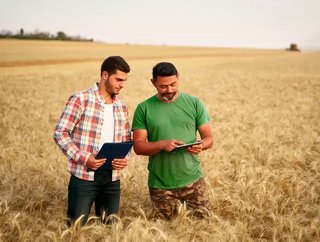100 Million Farmers: the move to net-zero

Humans invented agriculture 7,000 years ago and the process has changed, developed and adapted with each new pair of hands to work in the field. It’s no different then, that farmers are now moving along with the rest of the world, towards net-zero farming.
The World Economic Forum has announced 100 Million Farmers, a platform moving towards “Net-zero and nature-positive food systems by 2030,” which encourages “local solutions” as well as empowering farmers.
Net-zero farming will be a huge but necessary challenge, including familiar activities such as planting trees and utilising renewable energy, as well as investing in technologies which bypass pollution and improving soil health.
Farming also blocks up land which could be used to plant trees, fruit or vegetables, as land for animals to graze in. The process of deforestation, where trees are chopped down or burned away, is often to vacate land for cattle. Cows in particular produce the green-house gas methane, which adds to the greenhouse effect produced in farming.
Food giants take on call to go net-zero
Across Earth Day at the end of April, food giants made grand promises. Over the next few decades, each business will have to put their money where their mouth is.
Nestle, the biggest food company in the world with a revenue of $63bn, has already started the move to net-zero. Employing 600,000 farmers across the world for their ingredients, Nestle said: “We are targeting our efforts, focusing on cutting methane emissions, helping farmers access innovative technologies and encouraging the implementation of more efficient soil, herd and land management techniques.”
Another of the food giants, Unilever, plans to reach net-zero emissions throughout its whole supply chain by 2039. CEO Alan Jope said: “[We will] be transparent about our plans, and strengthen engagement and dialogue with our investors."
Global food security
In addition to the net-zero agriculture transformation, global food security is a rising issue. According to World Vision, 690 million people, 8.9% of the world’s population, are starving. The international level of food insecurity has been growing since 2014, according to The World Health Organisation and food prices have also risen during the pandemic.
Yet in Developed Nations, obesity related deaths are growing. In the UK, one third of children are obese by the age of nine. Yet obesity can be related to the socio-economic background of the individual. In the USA, research by Centres for Disease Control and Prevention found: “Obesity prevalence was 18.9% among children and adolescents in the lowest income group”. Children from poorer families are more likely to be obese due to junk food being less expensive and taking less household energy to cook, than healthier alternatives.
By 2050, the world’s population is expected to hit ten billion people, but the current world’s food system is failing millions of people. It needs to change in order to support the expected population boom and the journey to net-zero could be an opportunity for this to take shape.






